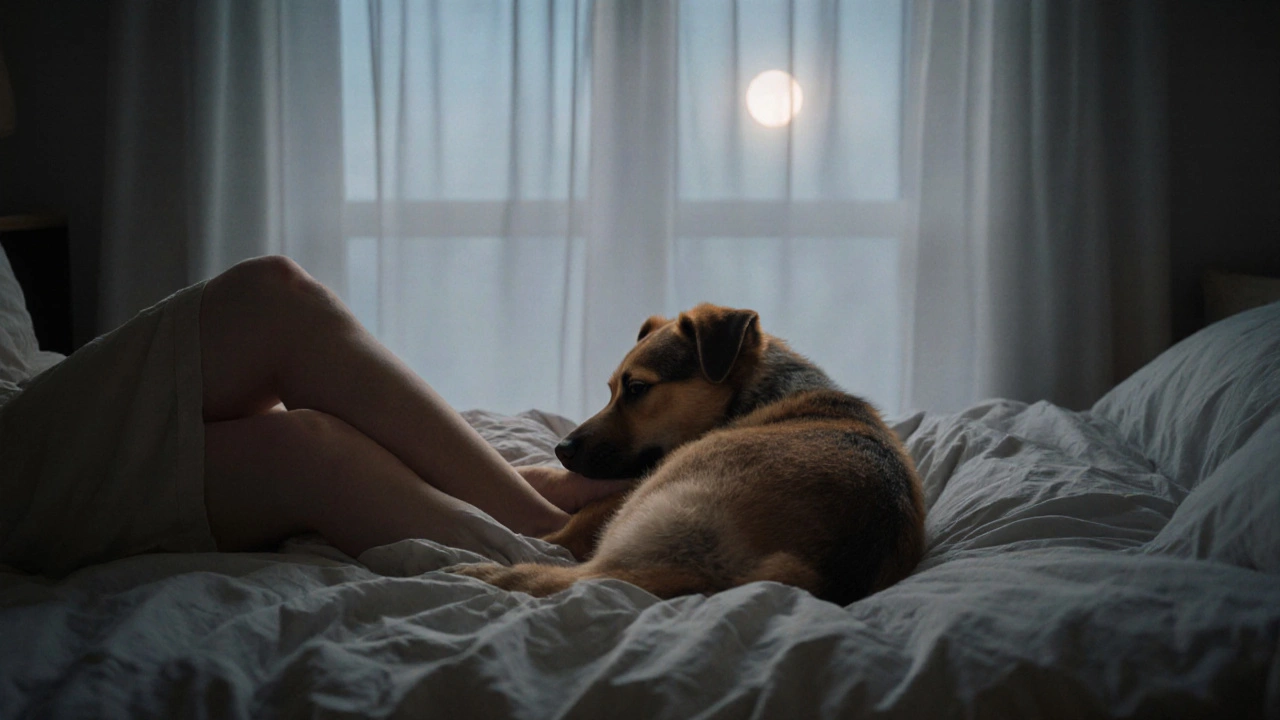Dog Sleeps Next to Bed: Why It Happens and What It Means
When your dog sleeps next to bed, a common and deeply rooted behavior in domesticated dogs that reflects social bonding and security needs. Also known as bed-sharing with dogs, it’s not just about warmth—it’s a sign your dog sees you as part of their pack. This isn’t random. Dogs evolved from wolves, who slept in close-knit groups for safety and warmth. That instinct hasn’t disappeared—it’s just moved from the forest floor to your bedroom.
Many owners assume their dog wants the bed because they’re spoiled, but the truth is often simpler: your dog feels safest when they’re near you. Studies show dogs with separation anxiety are far more likely to seek out sleeping spots right beside their owner. If your dog paces, whines, or seems restless when left alone, sleeping next to your bed might be their way of coping. On the flip side, if your dog curls up quietly at your feet without fuss, they’re probably just enjoying the comfort and routine you provide. Either way, this behavior is tied to dog bonding, the emotional connection formed through daily interaction, trust, and physical closeness. It’s one of the clearest signs your dog feels secure in your presence.
Not all dogs do this, though. Some prefer their own bed, crate, or corner of the room—and that’s perfectly normal too. But if your dog consistently chooses to sleep next to your bed, it’s worth asking: Are they seeking comfort, or are they signaling stress? Look at their body language. Are they relaxed, or do they twitch, pant, or keep their eyes open? A dog who sleeps deeply with their belly down and tail curled is feeling safe. One who’s stiff, alert, or constantly shifting positions might be anxious. This is where understanding dog sleeping behavior, the patterns and cues dogs show during rest that reveal their emotional state becomes useful. It’s not just about where they sleep—it’s about how they sleep.
There’s also a practical side. Dogs are sensitive to temperature, noise, and movement. Your bed might be warmer than the floor. Your breathing and heartbeat are soothing rhythms. Even the faint sound of your snores can be calming. For some dogs, especially older ones with joint pain, the softness of a mattress is a big upgrade from hard floors. And if you’ve ever woken up to your dog nudging you at 3 a.m., you know they’re not just being annoying—they’re communicating a need, whether it’s to go out, feel reassured, or just get closer.
What you’ll find in the posts below are real stories and science-backed insights from owners who’ve noticed these same patterns. You’ll learn how to tell if your dog’s nighttime habits are healthy or a sign of deeper issues, how to create a better sleep setup if you want to give them space, and what to do when their closeness becomes a problem. You’ll also see how this behavior connects to other things—like why your dog puts their paw on you, how they react to grooming, or even whether they enjoy watching TV. These aren’t random quirks. They’re all pieces of the same puzzle: how your dog understands and interacts with your world.
Posted By Bryndle Redding On 30 Oct 2025 Comments (0)
Why Does My Dog Sleep Next to My Bed? The Real Reasons Behind the Behavior
Your dog sleeps next to your bed not because they’re spoiled, but because of instinct, scent, and trust. Learn the real reasons-and what to do if you want to change it.
READ MORE